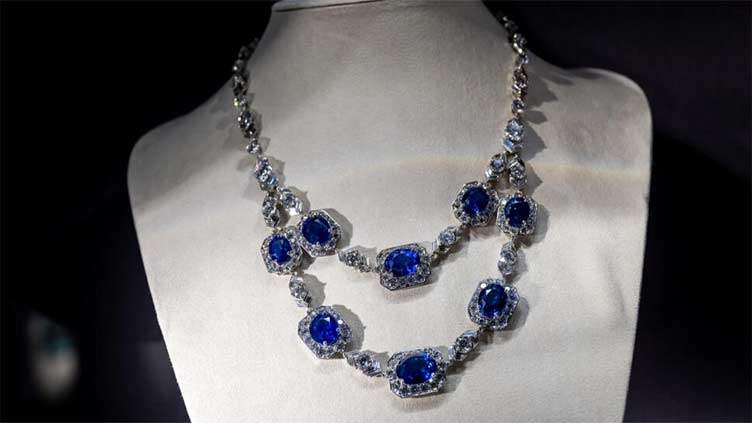Jewellery with Nazi links up for auction despite criticism

World
The Christie's auction house plans to sell the entire collection of 700 jewels
Geneva (AFP) – Jewels belonging to an Austrian billionaire whose German husband made his fortune under the Nazis go under the hammer on Wednesday, despite demands by Jewish groups to call the sale off.
The Christie's auction house plans to sell the entire collection of 700 jewels, estimated to be worth more than $150 million, by the end of the year.
A portion has been available online since last week, while nearly 100 pieces will be sold in person in Geneva on Wednesday and another 150 on Friday.
The jewellery, including pieces from 20th-century designers such as Cartier, Bulgari and Van Cleef & Arpels, belonged to Heidi Horten who died last year aged 81, with a fortune of $2.9 billion, according to Forbes.
Among the main attractions Wednesday will be the Sunrise Ruby, estimated at $15-20 million, Christie's said.
The sale could eclipse previous records set by Christie's in sales of properties that belonged to actress Elizabeth Taylor in 2011 and the "Maharajas and Mughal Magnificence" collection in 2019, both of which exceeded $100 million.
A report published in January 2022 by historians commissioned by the Horten Foundation said Heidi Horton's husband Helmut Horton, who died in Switzerland in 1987, had been a member of the Nazi party before being expelled.
'Indecent'
In 1936, three years after Adolf Hitler came to power in Germany, Horten took over textile company Alsberg, based in the western city of Duisburg, after its Jewish owners fled.
He later took over several other shops that had belonged to Jewish owners before the war.
A growing number of Jewish groups have asked Christie's to halt the sale.
"This sale is indecent," Yonathan Arfi, president of the Representative Council of Jewish Institutions in France (CRIF), said Tuesday.
"Not only did the funds that allowed the purchase of this jewellery come in part from the Ayranisation of Jewish property conducted by Nazi Germany, this sale is also to finance a foundation with the mission to safeguard the name of a former Nazi for posterity."
"Aryanisation" was a Nazi term for a policy of seizing property from Jews and hand it over to non-Jews, and the exclusion of Jews from business.
The Simon Wiesenthal Center (SWC), a Jewish human rights organisation, issued a statement last week saying Christie's "must suspend this sale until full research of link to Nazi era acquisitions are completed."
The American Jewish Committee meanwhile criticised Christie's decision to contribute proceeds from the sale to a Holocaust research and education organisation.
'Nazi victims'
"It is not enough that this sale will benefit a charitable foundation or that Christie's will make an unspecified donation for Holocaust education," it said.
"Instead, the auction should be put on hold until a serious effort is made to determine what portion of this wealth came from Nazi victims," it added.
But the auction house defended the sale.
"The foundation and Christie's know that all of the proceeds are going towards charities, the charities are child protection and welfare, medical research and access to the arts," its international head of jewellery Rahul Kadakia told AFP.
"Christie's separately is making a significant donation towards Holocaust research and education," Kadakia added.
"We believe that in the end, proceeds of the sale is going to do good and this is the reason we decided to take on the project."
In addition to 400 of the Horten lots to be sold by Christie's in May, another 300 other pieces will be sold online in November.

